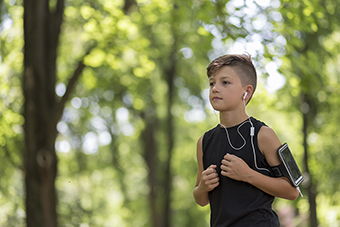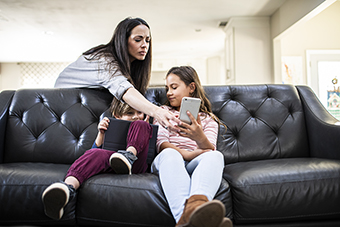Public supports expanded Internet safety requirements to protect kids


Public supports expanded Internet safety requirements to protect kids
Today’s children have more access to the Internet and web technology than any previous generation. With increased access, there is increased potential for encountering Internet dangers such as cyberbullying, online predators, and loss of privacy. Adults in the U.S. annually rate Internet safety as a top health concern for children.
The Children’s Online Privacy Protection Act (COPPA) is intended to protect young children from some of these Internet dangers by prohibiting collection of personal information through websites if the user is under age 13. But COPPA was written in 1998, before the dawn of smartphones and social networking sites like Facebook and Twitter.
The Federal Trade Commission is considering updating COPPA to reflect technology advances in the past decade. In September 2012, the C.S. Mott Children’s Hospital National Poll on Children’s Health asked parents about devices their children have and their Internet use. In addition, adults across the country were asked about proposed amendments to COPPA.
Internet Use
The majority of children under age 13 use the Internet: 87% of parents report their child age 9-12 uses the Internet. Among parents of children age 5-8, 58% say their child uses the Internet.
Two-thirds of adults think that children should be at least age 13 to use the Internet on their own. However, many children under age 13 currently access the Internet on their own: among parents with a child age 9-12, 29% say their child has their own Wi-Fi enabled device and 21% of parents with a child 5-8 say their child has their own Wi-Fi enabled device.
Proposed Updates to COPPA
In general, adults 50 years and older were substantially more likely to say they would strongly support COPPA updates than were younger adults. Otherwise, there were not major characteristics of adults (e.g., gender, race/ethnicity) that were consistently related to support for the proposed amendments to COPPA.

Highlights
- Two-thirds of adults think children should be at least 13 to use the Internet on their own.
- 29% of parents with children age 9-12 say their child has their own Wi-Fi enabled device; 21% of parents of children age 5-8 have such devices.
- Nearly two-thirds of adults strongly support proposed updates to COPPA legislation to protect children under 13.
Implications
Using the Internet can help children find information, learn about new technology, and become capable digital users. However, Internet users might also encounter potential dangers like cyberbullying, online predators, and loss of privacy – which can be especially concerning for children and adolescents.
When it was enacted in 1998, COPPA was intended to keep children under age 13 safe online. Today’s digital landscape has changed dramatically from the time COPPA was written – and it now features popular social networks like Facebook and Twitter that can be accessed via apps on smartphones. For these reasons, the Federal Trade Commission proposed updates to COPPA and recently invited public comment. Some children’s advocates favor these amendments, while Internet-related industries have emphasized that online safety and privacy is most effective in the hands of parents.
In this Poll, nearly two out of three adults expressed strong support for proposed COPPA updates, including requiring apps designed for kids to confirm that users are at least 13 and prohibiting apps from collecting personal information from users under age 13. This level of strong support, especially among adults 50 years and older, is consistent with prior Poll findings that Internet safety is a leading child health concern among adults in the U.S.
Just as the digital landscape has changed in the past decade, it will almost certainly continue to evolve in the next. For that reason, it is important that parents play a key role in protecting their children online. With so many young children using the Internet regularly, parents must talk to their kids about Internet safety and help teach them to identify and avoid dangerous situations. COPPA updates can help shape and safeguard the Internet environment, and with parental input children can remain safest online.

Data Source & Methods
This report presents findings from a nationally representative household survey conducted exclusively by GfK Custom Research, LLC (GfK), for C.S. Mott Children’s Hospital via a method used in many published studies. The survey was administered in September 2012 to a randomly selected, stratified group of adults (n=2,137) from GfK’s web-enabled KnowledgePanel® that closely resembles the U.S. population. The sample was subsequently weighted to reflect population figures from the Census Bureau. The survey completion rate was 60% among panel members contacted to participate. The margin of error is ± 2 to 8 percentage points.
Findings from the C.S. Mott Children's Hospital National Poll on Children's Health do not represent the opinions of the investigators or the opinions of the University of Michigan. The University of Michigan reserves all rights over this material.
Citation
Davis MM, Singer DC, Kauffman AD, Gebremariam A, Clark SJ. Public supports expanded Internet safety requirements to protect kids. C.S. Mott Children's Hospital National Poll on Children's Health, University of Michigan. Vol 17, Issue 1, November 2012. Available at: http://mottpoll.org/reports-surveys/public-supports-expanded-internet-safety-requirements-protect-kids.



